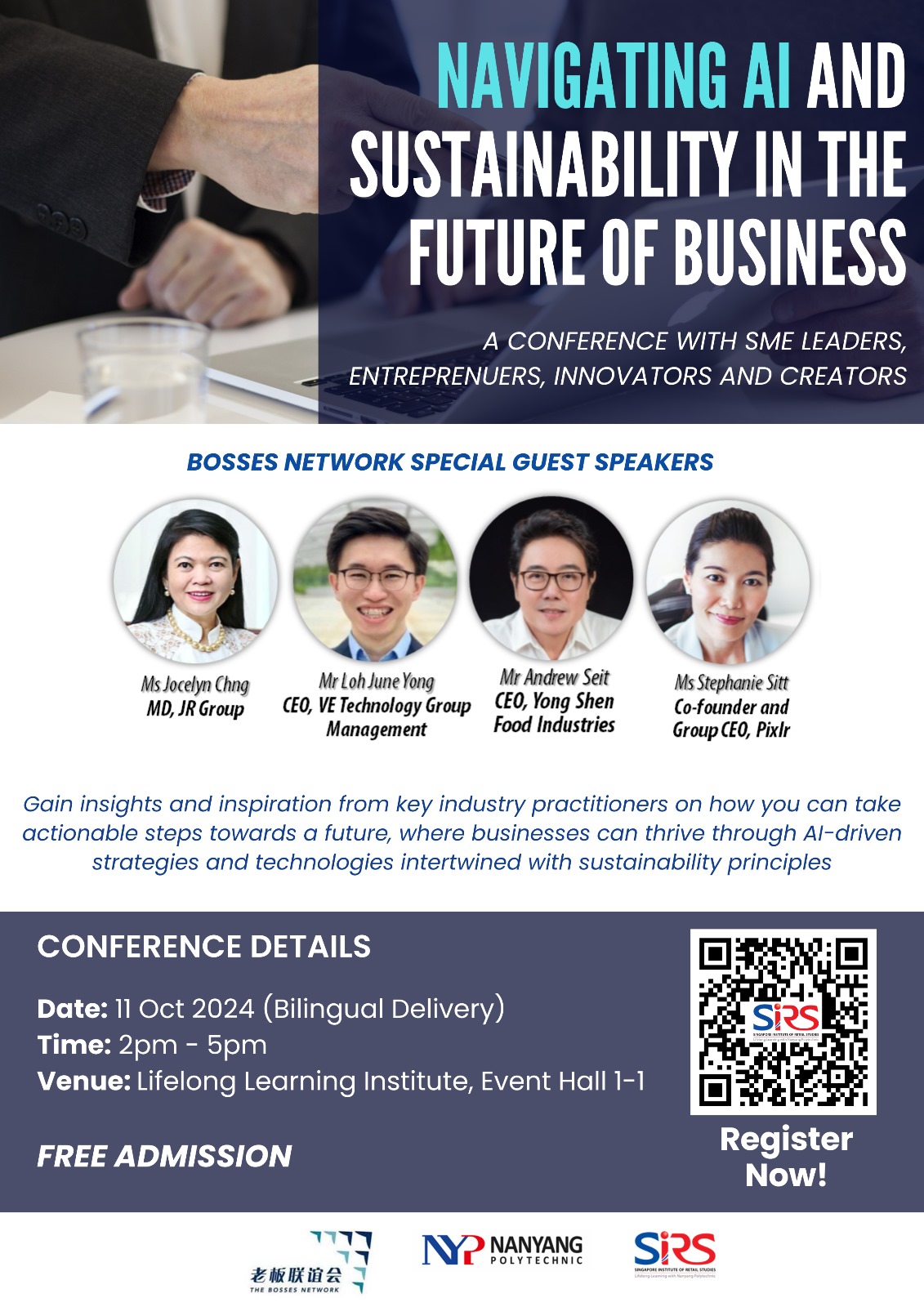Harnessing AI for a Sustainable Future for Small Businesses
"The greatest threat to our planet is the belief that someone else will save it." - Robert Swan

In today's rapidly changing economy, small businesses face unique challenges and opportunities as they strive for sustainability. The integration of artificial intelligence (AI) serves as a transformative tool in this endeavour, enabling small enterprises to enhance their operations while contributing positively to the environment. This article explores the multifaceted role of AI in fostering sustainability and offers practical guidance for small business owners looking to leverage technology for a greener future.
The Benefits of AI in Sustainability
AI offers an array of significant benefits for small businesses aiming to adopt sustainable practices. One of the most profound advantages is improved efficiency. Through AI-driven analytics, businesses can optimize resource management to reduce waste and lower operational costs. For instance, energy management systems powered by AI analyze real-time energy consumption patterns to identify inefficiencies. These insights empower businesses to adjust their operations, leading to substantial decreases in energy consumption and costs.
Additionally, AI's ability to forecast demand through predictive analytics plays a crucial role in sustainability. By analyzing historical sales data, trends, and external factors such as market conditions and seasonal changes, small businesses can make informed decisions about production quantities. This, in turn, helps to avoid overproduction and minimizes waste—a vital concern for those looking to adopt environmentally-friendly practices.
Practical Applications of AI for Sustainable Practices
Small businesses can implement AI in various ways to further their sustainability goals. One potent application is in supply chain management. For instance, AI technologies can enhance logistics by optimizing delivery routes, thus reducing fuel consumption and carbon emissions. AI algorithms track inventory levels in real-time, preventing overstocking and wastage of perishable goods.
Moreover, AI can enhance customer engagement through personalized marketing strategies that encourage sustainable consumer behaviors. Social media analytics and consumer behavior tracking allow small businesses to tailor their marketing efforts, presenting eco-friendly products prominently to audiences likely to appreciate them. For example, an online eco-friendly clothing retailer can utilize AI to analyze customer preferences and promote sustainable fashion items accordingly.
Success Stories of Small Businesses Using AI
Numerous small businesses have successfully integrated AI to bolster their sustainability efforts. One prominent example is a local coffee shop that utilized AI to monitor inventory levels and reduce food waste. By employing a simple AI application that predicts customer traffic and consumption patterns, they could adjust their brewing schedules and daily pastry offerings. This proactive approach minimized waste and increased revenue, demonstrating the direct impact of AI on sustainability initiatives.
Another inspiring case involves a small fashion retailer that adopted AI-driven design tools to create a more sustainable clothing line. By analyzing consumer preferences through machine learning algorithms, they were able to produce garments that resonated with environmentally conscious buyers. This targeted approach reduced unnecessary inventory and waste, showcasing how AI can drive both profitability and sustainability.
In the agricultural sector, small farmers are using AI technologies to optimize their production methods. For instance, precision farming techniques powered by AI allow farmers to collect and analyze data on soil health, weather conditions, and crop diseases. By using AI to make informed decisions on irrigation and pesticide application, these farmers can significantly reduce resource usage and enhance their overall sustainability practices.
The Role of AI in Promoting Renewable Energy Solutions
AI technology also plays a pivotal role in advancing renewable energy solutions for small businesses. By employing AI-powered energy management systems, businesses can analyze their energy consumption patterns and identify opportunities for solar panel installation or other renewable energy sources. For example, an AI system can simulate potential energy savings by assessing various renewable options, allowing business owners to make strategic investments in sustainable energy.
Moreover, AI can facilitate smarter energy distribution. Advanced algorithms ensure that energy generated from renewable sources is utilized efficiently, reducing reliance on fossil fuels. These practices not only promote sustainability but also create a competitive edge for small businesses in an increasingly eco-conscious marketplace.
Challenges Faced by Small Businesses in Adopting AI
While the benefits of AI in sustainability are clear, small businesses may encounter challenges in implementation. One common hurdle is the initial investment and resource allocation required for AI technologies. Small enterprises often operate on tight budgets, making it difficult to justify the upfront costs associated with AI systems. However, it is essential to view these investments as long-term solutions that can ultimately lead to significant cost savings.
Moreover, there may be a learning curve involved in adopting AI. Small business owners and their teams must be willing to invest time in training to understand the technologies and their applications fully. Collaborating with technology partners or seeking mentorship from experienced AI practitioners can alleviate some of these challenges.
Conclusion
As we look toward the future, the intersection of AI and sustainability presents an exciting frontier for small businesses. By harnessing the power of AI, entrepreneurs can enhance their operational efficiency while playing a vital role in building a sustainable future. Adopting these technologies not only ensures their businesses remain competitive but also contributes to environmental preservation.
Small business owners who invest in AI technologies to implement sustainable practices will find not only profitability but also a meaningful contribution to the well-being of their communities and the planet. The journey toward a sustainable future is illuminated by innovation, and AI stands at the forefront of this vital transformation.
Come join us at the event in Oct 2024
If you are a small business owner exploring ways to integrate AI into your operations and sustainability initiatives, begin by assessing your current processes. Identify key areas where AI can make a difference—whether in energy management, inventory control, or customer engagement—and start exploring available technologies that fit your budget and goals. The future is bright for those willing to innovate and embrace change; the time to act is now.
Come join us at the event below. Register on https://form.gov.sg/66cfe543ebb60bd9c48255c6 or scan the QR code












